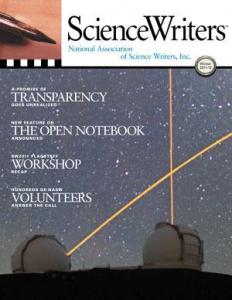By Julian Block
An accommodating Internal Revenue Service makes it relatively easy to correct mistakes on previous returns without the need to completely redo the returns or go through any complicated red tape.
Go to irs.gov for Form 1040X (Amended U.S. Individual Income Tax Return), a two-page form, and accompanying instructions on how to explain the reasons for the changes and how to compute refunds or balances due. While you're at the IRS site, download any forms or schedules for the year you're amending. Also get Publication 556, Examination of Returns, Appeal Rights, and Claims for Refund, which has helpful information not contained in the instructions. Click on "Forms and Publications;" then click on "Previous Years."Here's an example of how the rules work. John and Blanche Bickerson are sending a 1040X for 2009 that claims additional deductions for three categories: First, Blanche's Schedule C (Profit or Loss From Business) listings for travel outlays (she overlooked trips to writers' conferences) and home-office expenses. She calculates office expenses on Form 8829. Second, John's Form 3903 computation of job-related moving expenses. Third, their Schedule A itemized deductions for his job-search expenses. The Bickersons also now realize they forgot to submit Form 2441, used to claim the credit for payments to caregivers for their children.
(Information on deductions for home offices and job-search expenses are covered in winter 2009-10 and summer 2011 issues of SW.)
Along with the 1040X, the Bickersons submit corrected 2009 versions of: Forms 2441, 3903 and 8829; and Schedules A, C and SE (Self-Employment Tax). Why is it important for Blanche to revise her Schedule SE? Those additional expenses for travel and a home office don't just reduce the amount she shows as profit on Schedule C, thereby reducing the amount of her business income subject to income taxes. They also reduce the amount of her business income subject to self-employment taxes, as calculated on Schedule SE. Blanche and many other writers get nicked more for self-employment taxes than for income taxes.
According to IRS officials, John and Blanche's decision to amend 2009's return will not, by itself, trigger an audit. What generally happens is that IRS examiners will sift through revised business deductions for travel and a home office and itemized deductions no differently than if the Bickersons had claimed the same deductions on an original return. Still, the Bickersons should be cautious. They expose themselves to more scrutiny when revisions involve "red flag" categories like write-offs for travel and entertainment, home offices, and job hunting. Examiners can go beyond questioning additional items on 2009's return. They frequently look at returns for other years.
Perhaps John and Blanche are nervous about their original return for 2009 because, say, she claimed some iffy write-offs for business expenses on her Schedule C and, not to be outdone, he claimed some iffy moving expenses and job-search expenses. They may want to forego amending. The examiners could conceivably uncover errors that extinguish the hoped-for refund and saddle the couple with bills for back taxes, plus nondeductible interest and stiff penalties. Something else the Bickersons should remember is that approval of a refund claim for 2009 doesn't preclude a later audit for that year.
A change to their 1040 form for 2009 also might mean that the Bickersons have to amend their state return for 2009. If so, they need to file the appropriate state version of the 1040X.
_Julian Block is an attorney and author based in Larchmont, N.Y. He has been cited as "a leading tax professional" (New York Times), "an accomplished writer on taxes" (Wall Street Journal) and "an authority on tax planning" (Financial Planning Magazine). For information about his books, visit julianblocktaxexpert.com.

